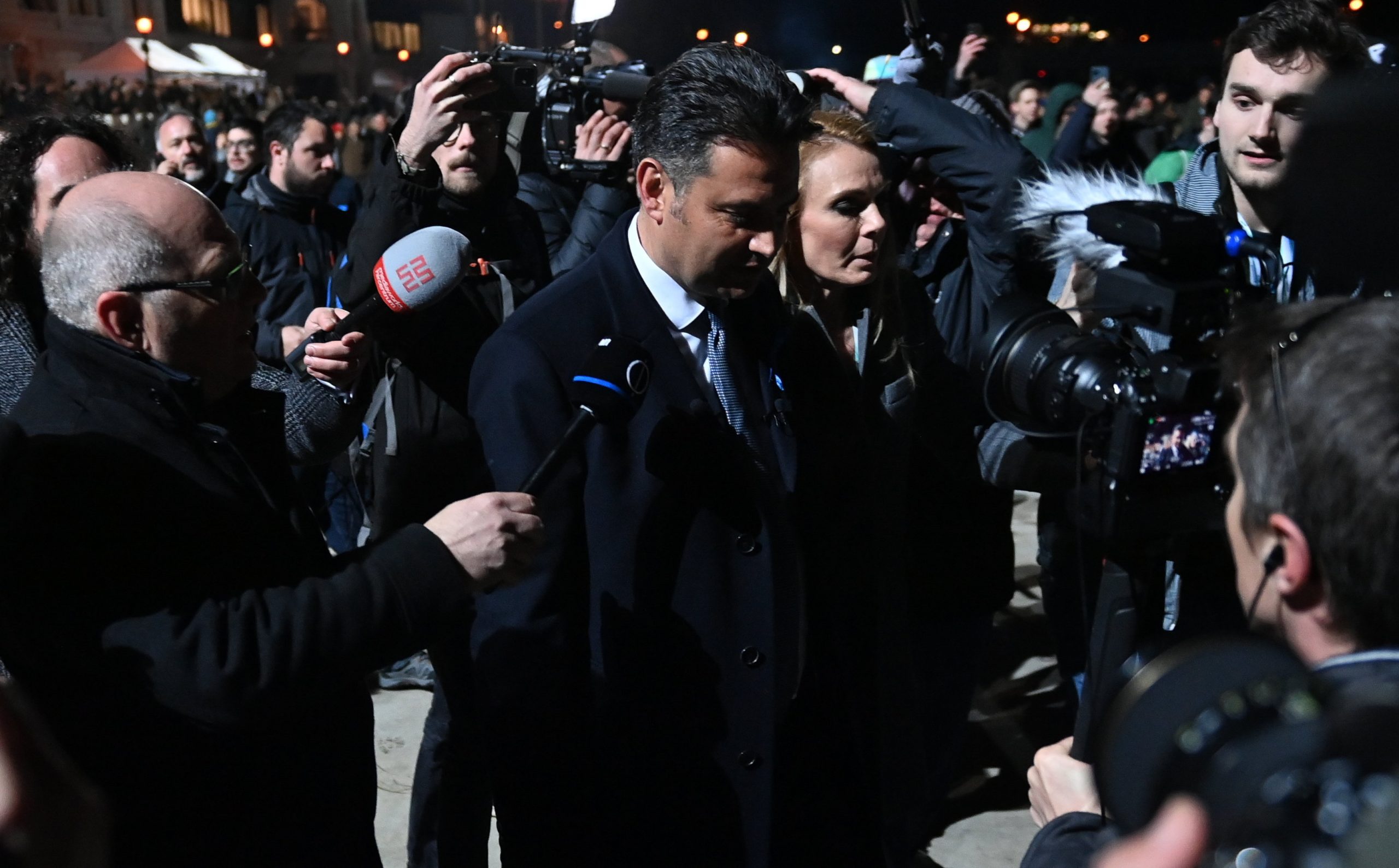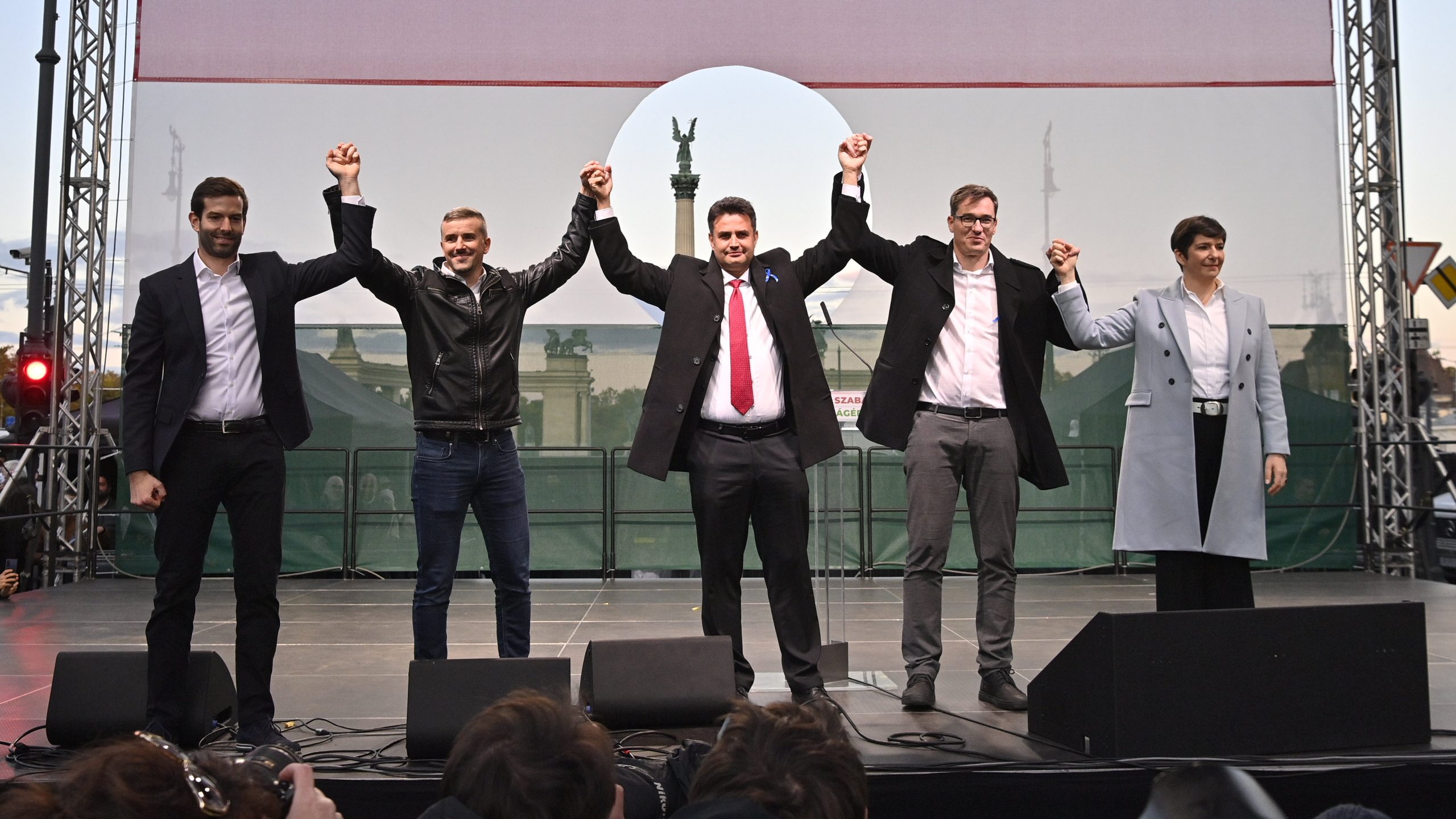
"It cannot be denied that Sunday's election is a devastating result for the future of Hungary, as it failed to replace the most corrupt government in Hungarian history," the opposition's statement reads. Continue reading

After a month and a half of gathering information, Direkt36 has shared its findings on why the United for Hungary opposition alliance had such a terrible performance in the 2022 April 3 Hungarian elections. Having interviewed nearly thirty party insiders heavily involved during the coalition’s campaign, the investigative news portal reported on Péter Márki-Zay’s isolation from advisors and party leaders, alleged internal negotiation conflicts, a poor approach to the campaign, and a blunder on the Ukrainian war that Fidesz media capitalized on.
An extensive article by Direkt36 has revealed numerous issues that allegedly transpired in the opposition alliance, which paved the way to its clear defeat on April 3. While on the outside it may have seemed like the most cohesive instance of the Orbán government’s opposition since 2010, a deeper investigation shows United for Hungary’s fragility.
Márki-Zay was given a lot more control over the coalition when he won the primaries, along with the option to have two experienced campaign advisors at his back.
However, a meeting with Péter Tóth and Bálint Ruff took a turn, as the elected prime ministerial candidate, described by his peers as exceptionally confident in his own capabilities, rejected the proposed assistance. He said, apparently quite arrogantly, that he would govern the campaign with the help of his wife. “Who are you?” he asked them, “You don’t know anything.”
Turning away from experienced advisors evidently contributed to Márki-Zay’s defeat, as he had “no idea how to approach the situation,” when the time came to meet with opposition party leaders. “He had no political or organizational suggestions,” according to one source, another highlighting, for example, that he could not state who his campaign organizer would be.
Internal cohesion was a problem, and as one DK politician alleged that they had expected Márki-Zay to unite the parties by delegating important roles equally, this did not happen. In fact, the lack of internal cohesion is a recurring theme in the article which helps explain the defeat on election day. Appearances were deceiving.
In the leadup to the primaries, the coalition was allegedly worried about the social liberal Democratic Coalition (DK), the largest opposition party, of having too much control over the outcome of the primaries and the distribution of electoral districts. In a coalition of multiple parties, questions around who would step down for who in Hungary’s various electoral districts emerged as if ridings were items to bargain with.
DK, aware of the internal coalition forming against them, capitalized on the conflicts that existed between the right-wing and the socialists. They decided to use some of the electoral districts they controlled as bargaining power, getting Jobbik on their side by promising to step back in ridings where their candidates were competing against one another. A similar case took place with LMP.
“He referred to himself as if he were the CEO of a company, […] looking for a project manager,” Momentum’s Miklós Hajnal said about the time he approached Márki-Zay at the beginning of his campaign to discuss his campaign manager. Momentum found it particularly worrisome that the prime ministerial candidate wanted to appoint Péter Zaránd as his campaign manager. They had had a negative experience with Zaránd, one of their founding members and campaign leads, but who had not led a single successful election campaign in his career.
Nevertheless Zaránd became the campaign manager, tasked with uniting an already disjointed coalition. The assembly of the campaign team took weeks, with further conflicts arising only after it had been completed. According to a member of the team,
The [Everybody’s Hungary Movement] members felt like they were the winners, they had executed a victorious campaign, and now all of a sudden the losers were telling them how to run things.”
By January it became clear that the opposition’s campaign was not going according to plan. Meetings among party leaders to resolve the issue were fruitless, as they allegedly felt that cooperation with Márki-Zay had become impossible. The coalition leader consistently spoke about pro-Fidesz traitors operating in the ranks of the opposition.
Jobbik leader Péter Jakab eventually demanded that Márki-Zay stop making such accusations because they were “demoralizing.” He allegedly continued to come to open blows with statements Márki-Zay made, while DK leader Ferenc Gyurcsány voiced his dissatisfaction in a less head-to-head manner.
Other party leaders turned to Gyurcsány to help alleviate the discord, as he had been following his promise to involve himself as little as possible in the election campaign. In response, the former prime minister made a Signal group including all the party leaders, and according to one DK politician he wrote, “the captain needs to lead, not belittle those whom he is responsible for leading.”
The Russian invasion of Ukraine and subsequent, ongoing war turned into a major campaigning subject in Hungary. While the opposition criticized Fidesz for not doing enough to help Ukrainians, the governing party accused the opposition of being warmongers who would send Hungarian conscripts to fight in Ukraine.
Despite opposition leaders not saying anything of the like, the tactic proved effective. According to a survey conducted by Dimenzió Média Alapítvány, 30 percent of opposition voters believed the accusations that Márki-Zay would take Hungary to war. That number was more than doubled at 61 percent of undecided voters believing Fidesz’s claim.
Another claim stating that “the left would take away the 13th month pension,” which there was no clear evidence for, was believed to be true by 20 percent of opposition voters and 45 percent of undecided voters. Perhaps the power of such accusations has something to do with the overwhelming level of state control in public media and advertising, and the fact that Márki-Zay was given a total of 5 minutes to share his party’s platform on public television during the entire election campaign, but that’s a subject for another article.
Márki-Zay gave an interview to government critical news portal and YouTube channel Partizán on February 13, in which he told host Márton Gulyás that, if elected, as a NATO member, he would be willing to send military personnel to Ukraine if the alliance called on members to engage in military conflict.
This was a major turning point in the opposition’s campaign, since it was this question which public media jumped on in its accusations that Márki-Zay was a warmonger. According to Direkt36’s inside sources, not only was Márki-Zay exhausted when he arrived at the interview, but he arrived late and had absolutely no time to be briefed by his communications team.
The news portal also states that one week prior to election day, a video call between Márki-Zay and Ukrainian President Volodymyr Zelenskyy almost came together. The prime ministerial candidate’s campaign team saw this as an opportunity to clear up the rumors around the accusations flowing in the public media, but they were informed about the event much too late. The call, however, did not come together, as Kyiv was being bombed at the time and the Ukrainian President had to be moved to shelter.
Disunity continued in the alliance up until the election itself, and by the time their platform was published in March, Márki-Zay’s popularity had plummeted. People wouldn’t listen to opposition cold calls, opposition representatives were constantly asked whether he would actually send Hungarian conscripts to Ukraine, and in turn the rest of the opposition began distancing itself from Márki-Zay.
While morale seemed terrible throughout the opposition’s campaigning period, confidence among reassured Fidesz members shot up when their inside analysis showed that even former opposition voters had turned away from the coalition.
The article by Direkt36 helps give some closure on answers remaining around the now disjointed opposition. An election which, on paper, in theory, and perhaps in the eyes of many Hungarians, seemed like such a major threat to Fidesz’s twelve years of consistent reelections, ended up being a worst case scenario for the opposition.
Featured photo illustration by Zsolt Szigetváry/MTI